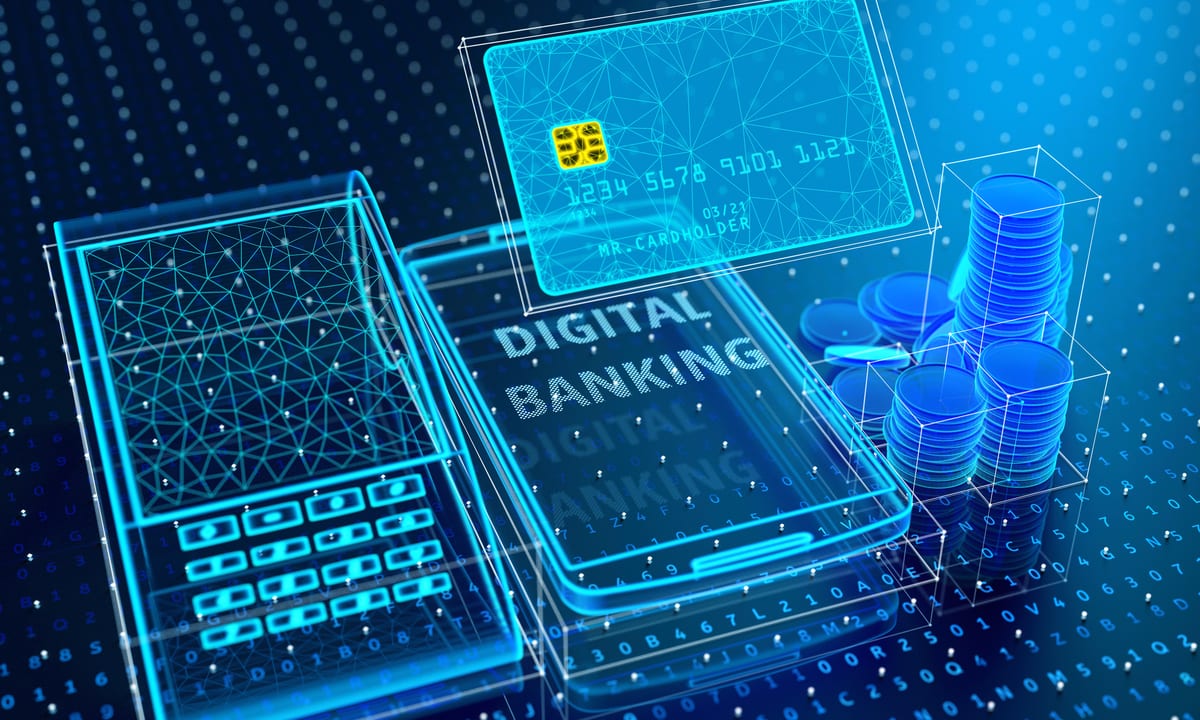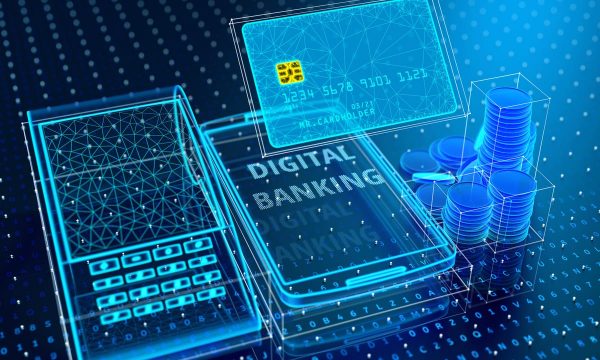Digitization has taken the world by storm, with technology and advanced analytics penetrating almost every industry. The banking industry, too, is not left out as they are left with no option other than to adopt digital banking in a major way if they hope to remain relevant.
Read more about FinTech
Currently, millions are banking without walking into a physical location, and that trend is unlikely to change.
Digital banking refers to the digitization of banking services, therefore reducing the need for consumers to physically visit a bank branch. Over time, traditional banking systems have become outdated as customers want efficiency, accessibility, and demand essential banking services in a physically safe manner.
It is evident that there are plenty of opportunities for banks to integrate and accelerate financial technology. In this rapidly evolving, ever-changing market, it is time to innovate, integrate and accelerate into the future.
Some Of The Future Trends To Look Out For Include:
Decline In Physical Banks
The relevance of physical banks will continue to fade, slowly but steadily, giving way to the overwhelming use of digital services by means of mobile, computer and other devices. Gradually, digital banks will take the place of physical banks as most activities carried out by physical banks can be carried out by mobile banks as well.
While physical banks are likely to disappear, but not entirely in the decade ahead, many of those remaining will have to repurpose to serve niche needs, as general financial services are increasingly available online through various digital banking apps.
Thinner Wallets
For consumers, it is advantageous to maintain access to a variety of payment options, but those options would definitely be cashless because almost all transactions will be carried out through digital appliances, which do not require cash. Not only are electronic transactions generally more convenient and efficient for individuals, but digital financial ecosystems also deliver significant advantages to businesses, governments, and economies at large.
Sign up to the Connect Nigeria daily newsletter
Cardless Payments
Before now, it would have been almost impossible to persuade someone that their entire cash value would one day be available for viewing and a variety of transactions would be completed via a small plastic card. However, that trend might soon go into oblivion as transactions are going to be carried out even without the use of cards.
Some Automated Teller Machines now operate without the use of cards and soon it will be a major trend.
Credit Relevance
Consumers will continue to depend on credit as long as wages and spending needs are uneven. However, what is on the edge of changing is how financial institutions make credit decisions, which will affect the relevance of credit scores and meet the needs of their customers.
In the same way, credit issuers took a more comprehensive approach to evaluate creditworthiness following the various financial crises, today’s institutions are turning to artificial intelligence to analyze the risks and rewards of consumer lending. The amount of data available to banks is only growing, and they will increasingly use it to discover better decision-making methods.
Generally, the digital banking industry may experience an alliance phase where legacy banks will collaborate with FinTech rather than compete with them.
The future of digital banking appears clear and bright, but the exceptional speed of innovation and shifts in consumer expectations demand a new level of agility and futuristic thinking. Human capital is as vital as any other asset and technology will both play vital roles in these developments.
The companies that succeed at perfectly combining these two dynamic forces people and technology are companies that are most likely to lead the challenging, changing times that lie ahead.
Featured Image Source: PYMINTS
Got a suggestion? Contact us: [email protected]


